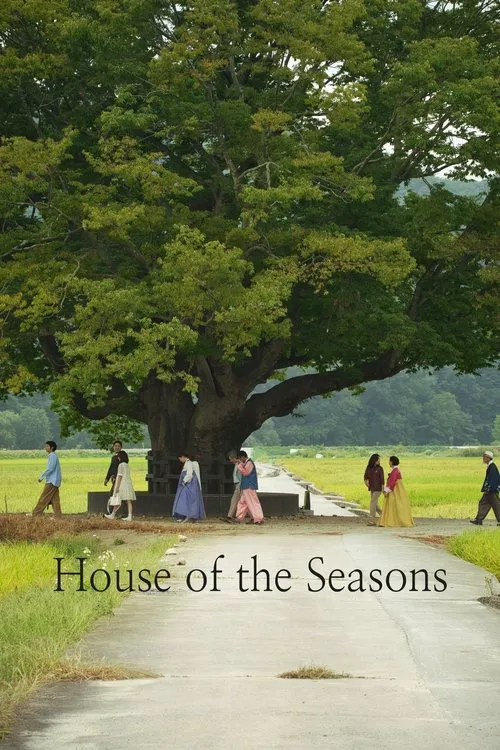House of the Seasons

あらすじ
In the midst of a sweltering summer, the Kim family converges on the city of Daegu, a convergence that is as much a cultural and social obligation as it is a deeply ingrained family tradition. The occasion is the ancestral rites, a ceremony that seeks to pay homage to their ancestors and cement the bonds of family and continuity. It is here that the family's collective narrative is set to unfold, with all its attendant joys, sorrows, and conflicts. Seong-jin, the eldest grandson, returns home to find himself face to face with a legacy he can hardly claim to cherish. His father, a man who once symbolized the very essence of tradition and duty, has gradually relinquished the reins of the family business: a humble tofu factory, nestled at the heart of the city. For Seong-jin, the decision to hand over the reins to his father marked a turning point in their lives, and a testament to the complexities of family dynamics. As the ancestral rites draw to a close, Seong-jin becomes increasingly restless, unable to escape the sense of expectation that hangs in the air. His family, it seems, has always assumed that he would take on the family business as his own, a notion that he finds increasingly suffocating. Despite the best efforts of his family to nudge him in the right direction, Seong-jin has begun to question his own desires, and the sense of purpose that has hitherto driven him. It is on the eve of the family's departure that Seong-jin makes a decision that will shake the very foundations of their existence. With a sense of trepidation, he gathers his family in the family's ancestral home and breaks the news: he will not be taking on the family business. The reaction is immediate and visceral, with shock, anger, and disappointment washing over his loved ones like a tidal wave. His father, once a steadfast embodiment of tradition, is taken aback by Seong-jin's decision. He feels betrayed, not just by his son's refusal to carry on the family legacy, but by the very idea that he might have failed to prepare him for the world beyond family expectations. His mother, a source of comfort and guidance, is left to navigate the treacherous waters of her own emotions, caught between her love for her son and her deep-seated respect for the family's traditions. Seong-jin's younger brother, Ji-hoon, is the most outspoken in his opposition to the decision, feeling that Seong-jin has abandoned his duty to the family. His words, while laced with anger and hurt, also carry a deep sense of frustration, a feeling that Seong-jin has chosen to abandon his true purpose in life. The rift that is beginning to open between the brothers threatens to tear the very fabric of the family apart, leaving scars that will take years to heal. As the family grapples with the aftermath of Seong-jin's decision, the film takes a deeper dive into the complexities of family dynamics, revealing the intricate web of emotions, expectations, and obligations that binds them together. Through a rich tapestry of characters, relationships, and experiences, the film skillfully exposes the tensions that simmer beneath the surface, revealing the intricate dance of power, privilege, and identity that plays out within the Kim household. Meanwhile, as the seasons change and the family's stay in Daegu draws to a close, Seong-jin finds himself on a journey of self-discovery, forced to confront the desires that have long remained unspoken. His relationships with his family members are tested, pushed to the breaking point by the very decision that he so passionately wanted to make. In the end, it is Seong-jin's capacity to listen, to feel, and to grow that will determine the course of his life, and the trajectory of his family's collective narrative.
レビュー
おすすめ



